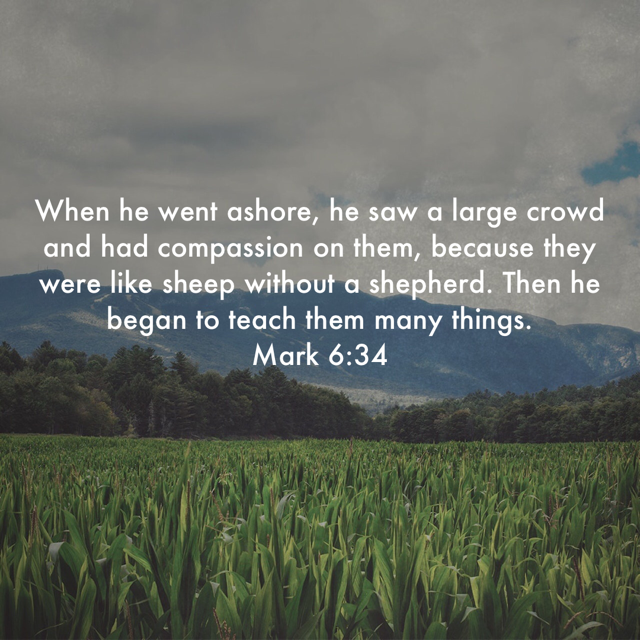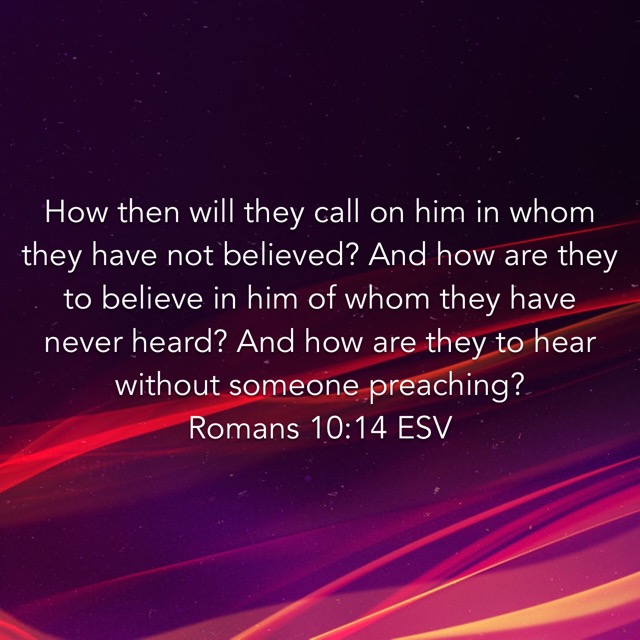Category: Uncategorized
#verseoftheday

Rest

“Come to me, all who labor and are heavy laden, and I will give you rest.” Matthew 11:28 (ESV)
I am so thankful that the one who designed the world created something call rest. He created the cycle of days and seasons as a natural pattern for work and rest. He created our bodies to follow this natural cycle as well. As I’m writing this on a Sunday afternoon I have just enjoyed a morning of worship with my family. I heard one person describe the weekly worship gathering as the closest taste of heaven that we get on earth. To go from an energizing morning of worship to a completely stress-free and relaxing Sunday afternoon is such a recharging experience.
Spiritually, when Jesus spoke these words recounted in the New Testament, the people he was speaking to were living in a religious system that was based completely upon their performance. They lived by a seemingly endless list of rules and demands that no one could hope to ever live up to. In the midst of this Jesus says to come to Him and He will give true rest. Rest from seeking to earn favor and acceptance based upon our performance. Freedom to receive God’s love and forgiveness.
Questions To Ponder:
How well are you resting in God’s unconditional love?
How often are you making space in your life for rest on a daily, weekly, monthly basis?
What is the biggest obstacle to finding rest in your life right now?
If Tomorrow Never Comes

“Therefore you also must be ready, for the Son of Man is coming at an hour you do not expect.” Matthew 24:44 (ESV)
I attended a funeral last week for a 39 year old single father who suddenly and tragically passed away. Both pastors who shared in the service were related to the young man and shared family memories as well as clearly presented the gospel. One of the memories shared was related to the song “If Tomorrow Never Comes” as made famous by Garth Brooks. For those in my generation the song is instantly recognizable as it was a #1 hit at the time. The song is a sad romantic ballad that begs the question throughout – what if tomorrow never comes? It caused me to do a little self-reflection on life, let me pose a few questions that ran through my mind:
If tomorrow never comes have you made peace with God?
If tomorrow never comes do you have any unresolved conflicts within your family or with another person you need to resolve?
If tomorrow never comes have you done a few simple things to take care of your family like a last will and testament and a living will?
If tomorrow never comes is there someone you know you need to share the gospel with one more time?
Happy Mother’s Day From The Fletchers

God Knows
Do you ever wonder if God knows what you are going through? Do you ever wonder if He cares? This past year we went through some pretty intense health issues with our parents. For several weeks Amy and I were both in full-alert-all-hands-on-deck crisis mode in two different states and at the same time trying to keep all the other plates in our lives spinning. Physical, spiritual, and emotional fatigue begins to set-in. While our faith never wavered, it was hard to ride the emotional ups and downs that accompany crisis.
In studying Scripture we can find encouragement. As difficult as we may have it, there is no struggle we can experience that hasn’t been experienced–and overcome–before. In the book of Exodus, the Israelites experienced forced slavery. They experienced genocide and infanticide. In short, they experienced the most degrading oppression possible by the most powerful nation at the time with no hope for the future. In the midst of this the Bible says,
“During those many days the king of Egypt died, and the people of Israel groaned because of their slavery and cried out for help. Their cry for rescue from slavery came up to God. And God heard their groaning, and God remembered his covenant with Abraham, with Isaac, and with Jacob. God saw the people of Israel-and God knew.” – Exodus 2:23-25 (ESV)
When I read these verses I’m drawn to several observations. First “the king of Egypt died.” The most powerful man of the most powerful nation who was doing these most horrendous things to the Israelites, he eventually died. He who was worshipped as a god, could not escape the judgment of God that all must face. No matter the circumstances, one thing is for sure, nothing lasts forever.
Second, I see the response of the people of Israel. Notice they “groan” and “cried out for help.” When I see the word groaning, I can’t help but think about a very physical and guttural sound. The oppression was so intense the people were physically moved to respond. It also speaks to their condition of an absolute and abject humility before God. They recognized inwardly and outwardly that they could not save themselves, help themselves, or do anything otherwise to change their situation. They cried out for help and for rescue. If to draw out some application – it’s okay to call our and cry out for help. This runs a little contrary to our facestagrammed world where every post, picture, and angle must be picture perfect. The cry for help from a posture of humility here also runs contrary to our #play#the#victim#and#be#outraged#all#the#time mentality.
The climax, however is not in the situation of the evil Pharaoh. The climax is not found in the response of the Israelites. The climax is found in the action of God. Look at all of God’s actions in these verses – “God heard . . .remembered his covenant . . . Saw the people of Israel-and God knew.” One action would be enough. “If God would just hear my prayer, hear my cry-if I could just know that my prayers were getting through.” This passage is a reminder that God does hear. He does see. He does know. Now in our instant-fix world we want God to see, hear, know and then come do something about it right now, right? And we want to tell Him how to work it out for us. While we get these two verses to find out the hope that God hears-it takes about 12 more chapters to see God work His act of redemption. Even then, there were parts to God’s redemptive grace that didn’t come to pass for a generation later as the people entered the Promised Land. In fact there were parts to God’s redemptive grace that wouldn’t come to pass for many generations later until His own Son would sacrifice Himself on our behalf. In fact there are parts to that promise that we are anxiously awaiting to be fulfilled. Like a kid at Christmas just waiting to see what might be under the tree-we know that God has ultimately prepared a place for us, that He’s coming back for us, that this life and this world, however messed up is, and however messed up it is going to get-this life and this world are going to get restored and renewed into something we can’t even imagine.
And with that-I’m glad God knows. I’m also glad that because He knows, that’s one less thing I have to worry about.
Untitled
It has been over two years since my family and I embarked on a major life transition. I have wanted to sit down and write about the whys and hows, but really have not slowed down enough to formulate my thoughts. I hope to put these thoughts into words, so apologies ahead of time for any grammatical cliffhangers.
In 2016, we left the comfort of full-time ministry for the adventure of bi-vocational work. We left friends, colleagues, and co-laborers in the gospel that we had made while in beautiful South Carolina and moved back to my hometown of Greensboro, North Carolina. My purpose in being back “home” is to point “my” people to Jesus. This was going to look completely different than anything we had ever done together as a family. One of the biggest adjustments has been transitioning back to the workplace. Several of my friends in ministry have asked what that transition has been like. Initially I explained that I have been working harder than ever before, logging 50-60 hours a week and still feel like I am on a sabbatical in comparison to the demands of the pastorate!
One of the stresses of ministry that afflicts many pastors is that they can become so focused on taking care of the sheep that are in the fold they can lose touch touch with the lost world around them. I’ll be the first to admit this was my own experience. I spent almost every moment around other Christians-either those in my own church or in various denominational positions. All these were good endeavors and I am eternally grateful for them. My own personal struggle, however, is that I allowed these good things to be a distraction from the “main thing.” Upon returning to the marketplace I suddenly found myself forced to engage completely outside of the Christian bubble. Like a spiritual anthropologist I want to briefly share what I have learned.
People Need Healing. The people I have met and encountered are dealing with all kinds of physical and spiritual needs. These range the entire gamut from financial, relational, family, health, to all kinds of emotional brokenness. I found in pastoring many people put up a wall when I came around. They would share the quintessential plastic smile that sent the message that everything is ok while in reality its the opposite. I’ve found people are a little more forthcoming about their challenges with me when I’m no longer the “senior pastor.” It’s also helped me realize I have built up my own walls and my own plastic smiles. I’ve got my own brokenness that needs healing. The truth is we all need Jesus. We need the Good News that Jesus died and rose again that we might be free from the guilt of sin and freedom to live a new kind of life.
People Need Hope. People need hope that there is a better tomorrow-that the pain, the struggle, the brokenness that we experience in the here and now is not forever-that it can and will change. I think many people have given up hope-the word for that is despair. If all you have to live for is this life and it turns out its not “your best life now” what hope do you have? If all the messages the world sends your way is that the mess you are in is because of powerful forces in this world that are beyond your control, what hope do you have? The gospel brings hope that change can happen-and because of Christ-transformation and change will happen. The gospel brings hope that there is a better future that lies ahead, which-in turn, brings hope for today and tomorrow.
People Need to Hear. If there is one thing I have learned it is that the gospel is for everyone-and it is part of our mission to get the gospel in front of those that have never heard. In many churches there is a strong inner gravity. A mindset that says-my church, my facility, my pastor, my ministry-is for me/us. That mindset is evident in that you can drive by church building after church building and every activity at that church is directed to the current members. I chuckle when I pass the church sign that says “Everyone Welcome” but has a locked gate across the parking lot. This sends the message that everyone is welcome if you’re like us or one of us. Our churches must counteract this inward gravity, which if we are not careful creates a black hole-where gravity implodes upon itself and sucks all the life down with it. We have got to take the gospel with us when we go to work and school, in our daily lives and on our social media. Our churches have to counteract this inward gravity and instead of emphasizing our own comfort, we should be breaking our hearts over those in our families and communities need that need the healing and hope of the gospel.
To my friends who are pastoring and leading churches: don’t give up!
For the Church
 On June 26th 2015 the Supreme Court of the United States ruled 5-4 and in one moment legalized same-sex marriage across all 50 states. This is a decision that we have seen coming for some time. It did not happen overnight. It should not come as a shock or as a surprise to anyone. It should serve as a wakeup call to every Christian who has grown up in this country that the United States is no longer a Christian nation. If there was any doubt left, yesterday’s decision has left no stone unturned.
On June 26th 2015 the Supreme Court of the United States ruled 5-4 and in one moment legalized same-sex marriage across all 50 states. This is a decision that we have seen coming for some time. It did not happen overnight. It should not come as a shock or as a surprise to anyone. It should serve as a wakeup call to every Christian who has grown up in this country that the United States is no longer a Christian nation. If there was any doubt left, yesterday’s decision has left no stone unturned.
While the world is busy following the prince and power of the air, the Enemy, down the road of destruction, what does this mean for the Church?
First, it means that we must stand even firmer on the truth of the Word of God. We must stand firm, because in Proverbs 14:12 we read, “There is a way that seems right to a man, but its end is the way to death.” Following what feels right, or accepted, or popular may allow someone the opportunity to fit-in with the culture, but in the end destroy themselves. 2 Thessalonians 2:15 says, “So then, brothers, stand firm and hold to the traditions that you were taught by us, either by our spoken word or by our letter.”
Second, it means that we must persevere. We are going to face real persecution in this country for the first time because of our beliefs. We will be hated, spit upon, and cursed. In some cases we will lose our jobs, in others the doors for promotion or advancement will be closed. We may eventually lose our property and be called to surrender our lives. Through it all we must endure this temporary suffering as our Lord and Savior endured so much worse on the cross for us. Jesus told his disciples in John 15:18, “If the world hates you, know that it has hated me before it hated you.”
Third, it means that we must love. We must love those that are blinded by sin. We must love those that hate us. We must love those who wish to silence, marginalize, and destroy us. We must love them as the Lord loves them. We must not bend or be silent, but we must not lash out in fear or in hate. We must lovingly point the world to the One who is our only hope, Jesus Christ. We must speak the truth unashamedly but speak it in love.
“You have heard that it was said, ‘You shall love your neighbor and hate your enemy’ But I say to you, love your enemies and pray for those who persecute you.” Matthew 5:43-44
“Here I stand, I can do no other.” Martin Luther – April 18, 1521
Solo Deo Gloria – “Glory to God Alone”
Rev. Jason Fletcher
Untitled
Dealing With the Chronic Complainer
“41 So the Jews grumbled about him, because he said, “I am the bread that came down from heaven.” 42 They said, “Is not this Jesus, the son of Joseph, whose father and mother we know? How does he now say, ‘I have come down from heaven’?” 43 Jesus answered them, “Do not grumble among yourselves.” John 6:41-43 ESV
Jesus had to deal with people who complained and criticized Him and His ministry. The people in this passage who were being critical were some of the same ones who Jesus had personally fed at the Feeding of the 5,000. How do we know the difference between someone who has a legitimate issue and someone who is just a chronic complainer?
What Is a Chronic Complainer?
principal #1 : chronic complainers always have something to complain about. This is where the rubber meets the road. Look at the track record. If someone is consistently critical, it is a character issue and has crossed the line from being just an isolated incident.
principal #2 : chronic complainers are contagious, they multiply like rabbits. Notice it wasn’t just one person, but had it spread to the crowd.
“Any fool can criticize, condemn and complain and most fools do.” – Benjamin Franklin
principal #3 : chronic complainers show their lack of faith
The root of all the Israelites’ complaining was a lack of faith in God. When we complain about things, we show we have little or no faith in God to handle what many times is out of our control.
principal #4 : chronic complainers can’t keep it to themselves. Here, they verbalized their displeasure at Jesus’ message. For the chronic complainer, it’s not enough just to think a certain way, it must be communicated to others – usually for self-validation
principal #5 : chronic complainers think you’re not doing your job. They didn’t think Jesus was doing what they thought he should be doing. If you look back at the context they had the idea that if Jesus was really the Messiah, they should be getting free bread every day, a restoration of the provision of the manna in the Old Testament. We can get messed up if we think we’re supposed to write everyone else’s job description; especially when that’s the Lord’s job.
principal #6 : chronic complainers question your qualifications. They questioned Jesus’ claim to be from heaven and pointed out his earthly parents.
Once we know what a chronic complainer looks like, then we can begin to deal with the problem. What Is the Cure for the Chronic Complainer?
principle #1: recognize the reality. You have to know what you’re dealing with. Always ask yourself first, am I falling into this trap? This is the law of the log and the speck. Before you go about taking out the speck in your neighbor’s eye, check for a 2×4 in your own.
“Complaining is like bad breath… You don’t always know you have it until someone tells you.”
Second, if we’re on the receiving end, Is the person I’m dealing with falling into this trap?
principle #2: confront the problem. Jesus didn’t just let them off the hook. If the problem is you, you need to confront yourself. If the problem is someone else, you need to confront them about it. If someone is being critical forgive them, if it doesn’t stop confront and forgive, and move on.
principle #3: stop complaining about it, whatever “it” is. the chronic complainer wants to point out the problem but not be part of the solution.
“Complaining is damaging on everything in our lives. We focus on the problem and don’t find the solutions.”
principle #4: stop the cycle “among yourselves.” What happens many times is that someone complains to us and we turn and pass that complaint on to others. If we want to follow Scripture we will go to Matthew 18 and if you have a problem with someone go to that person and that person alone and seek to work it out.
principle #5: replace the negative with a positive. A chronic complainer is quick to complain but doesn’t want to be part of the solution. What I’m learning about true repentance is that it is not just stopping the vice, because that just leaves a vacuum, but replacing it with the opposite virtue.
So what is the opposite of complaining? it is encouraging.
What is the opposite of talking about problems? solving them.
What is the opposite of talking behind someone’s back? going to them one-on-one.
I’m convinced that 95% of relationship problems, marriage problems, church problems, would all be alleviated it we could learn how to biblically communicate with one another. Unless you are a cartoon character and live in Candyland at some point or another in your life you have fallen into the trap of complaining and its negativity. I would encourage you to take a moment and repent. To say Lord, forgive me for the times that I have been negative and critical. Second, I would encourage you to resolve. To resolve to follow the Lord’s command and with his help to become encouragers instead of complainers. To resolve to build others up around you. That when you feel a complaint coming on that we seek to answer the question, how can I solve this problem? To resolve that you won’t be party to those who only want to point out problems but not work together for a solution.




